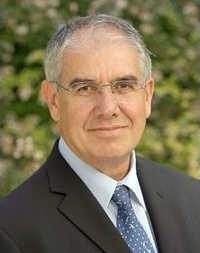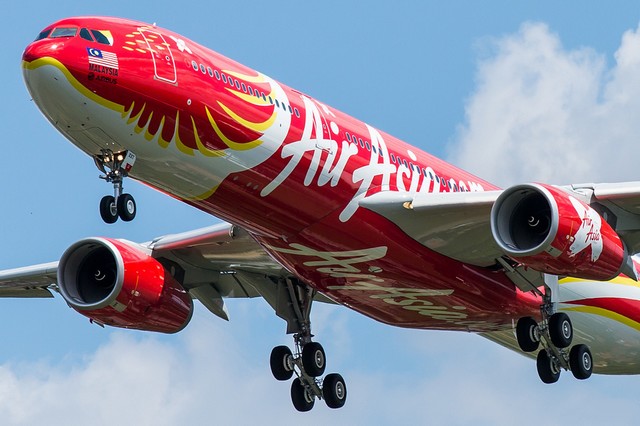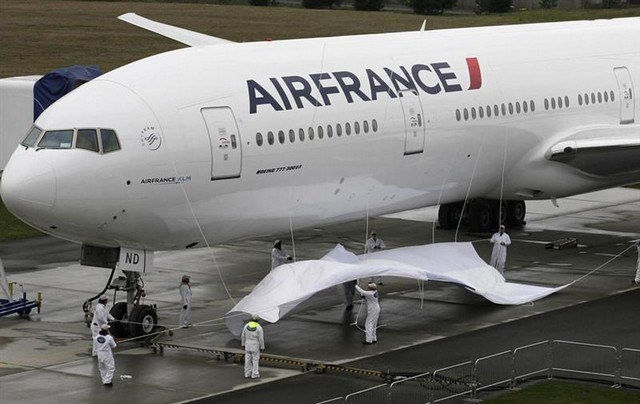The strategy that most air carriers have adopted is to grow, so much and more, either by internal growth, or by acquisition or merger with another carrier that preferably has a complementary network, or by the creation of alliances, JVs or other devices. You have to be global you have to be global.
That is the current creed. It is based on a rational observation: very large companies, those that support companies by buying business class seats, need a global interlocutor, since they themselves are. So from the moment you want to enter this fierce competition, it is essential to have the most extensive coverage.
All this makes sense, provided that carriers have the means to achieve their ambitions and that the search for growth has not obeyed their financial capacities.
 Certainly the most profitable companies are for the moment the three American giants. The results for 2016 are known and those for 2017 are currently being validated. So in 2016, the 3 largest net results were in order: Delta Air Lines with $4.373 billion, American Airlines with $2.676 billion and United-Continental Group with $2.263 billion. Together they represent a phenomenal turnover of € 116.375 billion and a net profitability of 8%. Their combined operating income was $16.577 billion, representing a ratio of
Certainly the most profitable companies are for the moment the three American giants. The results for 2016 are known and those for 2017 are currently being validated. So in 2016, the 3 largest net results were in order: Delta Air Lines with $4.373 billion, American Airlines with $2.676 billion and United-Continental Group with $2.263 billion. Together they represent a phenomenal turnover of € 116.375 billion and a net profitability of 8%. Their combined operating income was $16.577 billion, representing a ratio of
by more than 14%.
All this is impressive, but we must not forget that the 3 American giants have all gone through the Chapter 11 procedure, in short the American-style bankruptcy filing infinitely more flexible than European and particularly French legislation. This has enabled them to redefine their operations and, at the same time, to separate 30% of their workforce.
But in the end, smaller companies or those that have knowingly reduced their volume are not doing so badly. Take the case of the IAG group. The latter, led by Willie Walsh, under the governance of Rod Eddington, cut into his network in particular medium-haul with great determination. Finally, the size of the IAG group became smaller than that of Air France/KLM: $24.885 billion in turnover against $27.398 billion for the Franco/Dutch group. By resizing its operations alone, the IAG group has significantly improved its profitability. It posted net income of $2.152 billion, or 8.65% of sales.
 The top 5 profitability ratios, net profit to turnover, in the world’s top 100 carriers are Air Asia with 27.91%, Ryanair 19.80%, Vietnam Airlines 15.82%, Copa Holdings : 15.30% and Alaska Air Group : 13.72%. As we can see, these are not the
The top 5 profitability ratios, net profit to turnover, in the world’s top 100 carriers are Air Asia with 27.91%, Ryanair 19.80%, Vietnam Airlines 15.82%, Copa Holdings : 15.30% and Alaska Air Group : 13.72%. As we can see, these are not the
with the best results. They are those who were able or knew how to concentrate on a niche whose contours they master perfectly. It can be a geographical area, like Alaska Airlines, or a concept like Ryanair.
One may therefore wonder why the Air France/KLM group is still trying to maintain a global position knowing that this strategy has not enabled it to create prosperity.
 Over the last 9 years, between 2009 and 2017, the cumulative net result has been a deficit of 5,722
Over the last 9 years, between 2009 and 2017, the cumulative net result has been a deficit of 5,722
billion, which still makes an average loss of € 574,000 per day.
To offset these results, the group had to sell almost all its holdings, including the historical ones such as Servair or Amadeus, and finally sell part of its capital to Delta Air Lines and China Eastern.
Despite these sacrifices, these transfers have only made it possible to reduce debt without giving the means to renew the fleet. Half of the B 777s that make up the base of its long-haul fleet have not been rebuilt.
The company has lost part of its independence as a result of wanting to maintain itself against all odds on an exploitation that is too extensive. It can undoubtedly regain its former prestige. But it is then necessary to accept a drastic reduction of its perimeter to find an indispensable financial capacity.
Air France can become again what it was in the past: the best airline in the world, I did not say the biggest. This is undoubtedly to the extent of its capacities and it is certainly what could make the employees proud who, for the time being, are seriously demotivated.
Jean-Louis Baroux